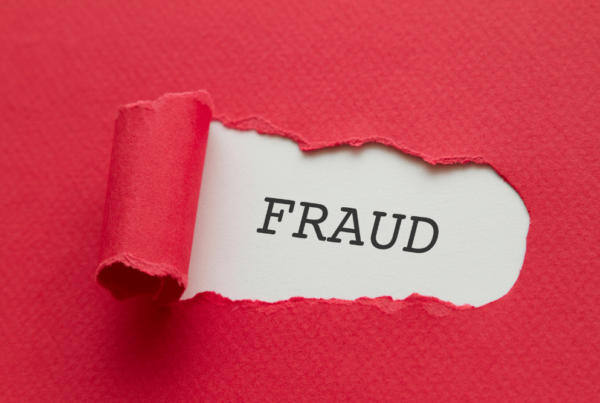This is Part 2 of an article series analyzing the U.S. federal implications of the college admissions and testing bribery scandal. This article delves into the specific charges against William “Rick” Singer, the mastermind of the entire scheme. Part 1 provided an overview of important facts and background information. Part 3 examines the federal consequences for various parents who participated in the scandal through the lens of Lori Loughlin and Mossimo Giannulli.
William “Rick” Singer: Mastermind of the College Admissions Scandal
From 2011 to 2019, William “Rick” Singer spearheaded a federal conspiracy to guarantee his clients’ children admission into elite colleges and universities. Commonly referred to now as the College Admissions Scandal, this widespread conspiracy involved bribery, cheating, and tax fraud, among other federal crimes.
In terms of a brief review of important background facts, William “Rick” Singer was an entrepreneur with several business ventures, including a for-profit company called Edge College & Career Network LLC (“The Key”) and a non-profit organization called Key Worldwide Foundation (“KWF”).
Over an eight-year span, Singer used The Key and KWF to establish a pay-for-play route into elite colleges for wealthy clients. Predominantly, Singer charged his clients to guarantee admission into high-ranking universities, funneling bribes through his non-profit organization. These bribes largely went to college officials and test administrators to secure improper benefits.
After his arrest in 2019, Singer cooperated with the remaining aspects of the Department of Justice (DoJ) investigation. As a result of this cooperation, the DoJ requested a lenient sentence on Singer’s behalf. Specifically, the DoJ recommended a short imprisonment and three years of supervised release as well as criminal fines and forfeiture. Though a federal district court judge had the final say in determining Singer’s sentence.
Ultimately, Singer pleaded guilty to numerous federal crimes, including racketeering conspiracy, money laundering conspiracy, conspiracy to defraud US, and obstruction of justice. Part 3 of this series will address money laundering as well as mail and wire fraud. Consequently, this article will focus on the other charges to which Singer pleaded guilty.
Racketeering Conspiracy
18 U.S. Code § 1962 is the federal statute that criminalizes racketeering activities. As part of the Racketeer Influenced and Corrupt Organizations (RICO) Act, this section makes it illegal to benefit directly or indirectly from various criminal activities. Furthermore, any person who conspires to commit racketeering will face the same punishment – whether or not the attempted crime was successful.
In more specific terms, Section 1962 prohibits any person from using a pattern of racketeering activities to secure business interests or collect unlawful debt. Activities that qualify as racketeering include but are not limited to extortion, kidnapping, gambling, trafficking, arson, robbery, bribery, and many other criminal offenses.
Under federal sentencing guidelines, the maximum sentence for racketeering conspiracy is imprisonment for 20 years and supervised release for three years. The convicted offender will also pay restitution and a fine equal to the greater of $250,000 or twice the total loss or gain from racketeering activities.
Conspiracy to Defraud the US
18 U.S. Code § 371 is the federal statute that prohibits efforts to defraud the United States. In this context, the United States includes any agency, division, or program of the federal government.
Essentially, Section 371 makes it unlawful for two or more people to conspire to defraud the U.S. government. To become a federal criminal offense, at least one of the co-conspirators must take some action to further the fraudulent purpose in question. It does not matter if the criminal attempt is ultimately successful. Conspiring and attempting to defraud the United States is a criminal offense under Section 371.
Under federal sentencing guidelines, the maximum sentence for conspiring to defraud the United States is imprisonment for five years, supervised release for three years, and fines up to $250,000.
That being said, if the alleged offenders conspire to commit a misdemeanor offense against the United States, there is a lesser punishment. In these cases, the punishment for violating Section 371 must not exceed the maximum punishment for the misdemeanor offense in question.
Obstruction of Justice
18 U.S. Code § 1503 is a commonly used statute for federal obstruction of justice charges. Though in reality, there are many federal statutes that address obstruction of justice, in in Title 18, United States Code, Chapter 73 and beyond.
From a general standpoint, Section 1503 prohibits any effort to obstruct, impede, or influence the “due administration of justice.” This a broad restriction that can apply in a variety of different situations, acting to preserve the legitimacy of the U.S. legal system.
Section 1503 also prohibits any attempt to impede, influence, or intimidate a judicial officer or juror. Using force, threats, or corruption to interfere with the performance of federal legal duties qualifies as obstruction of justice under Section 1503.
Under federal sentencing guidelines, the maximum sentence for obstructing justice is imprisonment for 10 years, supervised release for three years, and fines up to $250,000.





